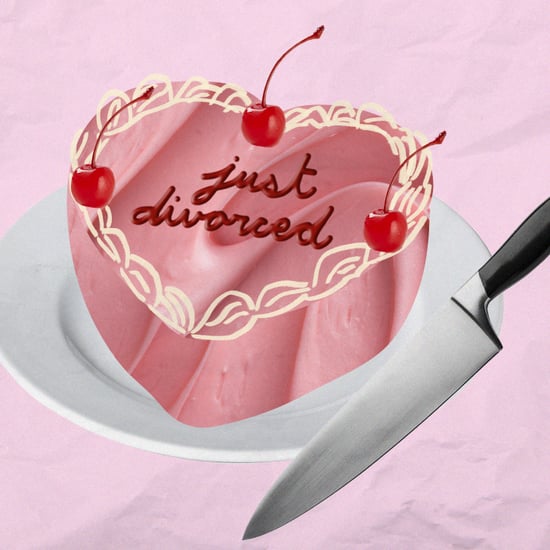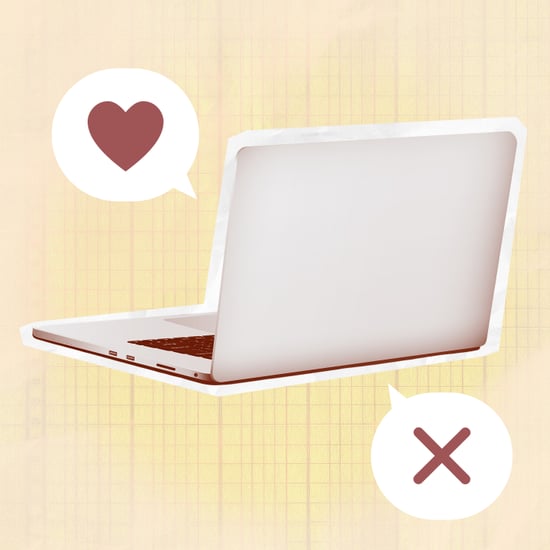The No Contact Rule Is the Best Way to Get Over a Breakup
The No-Contact Rule Is the Only Way to Win Your Breakup

Look, breakups are never fun for anyone, no matter which side of the "It's not you, it's me" conversation you're on. And while it's true that breakups can be a great way to channel new, healthier energy by encouraging behaviours like journaling, seeing a therapist, or spending more time at the gym, breakups can also encourage the not-so-healthy behaviours. (I'm talking constantly keeping tabs on your ex's Instagram "following" count and/or taking a bat to your ex's car a la Beyoncé.)
For that reason, if there's one thing I know for sure, it's that the no-contact rule is the best, most effective, and healthiest way to get over a breakup. Allow me to explain.
The no-contact rule is simple. It means: do not contact your ex under any circumstance. I don't care if it's their birthday, a holiday, or you just ate at their favourite hamburger place, as soon as you agree it's officially donezo, it's time to delete their contact, block them on social media, and go completely MIA. Why? Because you and your nervous system need to mourn the loss of this person.
On a neurological level, your brain develops "certain patterns and habits" in a relationship, says sex and intimacy coach Leah Carey. For example, when you receive a promotion at work, you likely call your partner to receive a hit of oxytocin from their praise and support. When your boss is being a dick, you maybe cuddle with your partner to calm your nervous system down. When you break up, it takes a while for your brain to process that you can no longer turn to that source of pleasure or security. Like, when something good happens, your brain will still want to call your ex because "it's reliant on that hit of feel-good chemicals." And when something bad happens, "you may still physically crave the touch of your ex," Carey says.
The no-contact period is vital in order for you to to break this habit and attachment, and break it fast. Plus, it provides an opportunity for you to learn how to self-soothe and meet your needs in other ways. Maybe you'll train for a 5K and find new endorphins that way. Maybe you'll speak with a therapist who helps you better manage your anxiety. Whatever happens, these are all good, necessary revelations that come from not relying on your ex to soothe or validate you.
Which brings me to my next point: The no-contact rule works the same way the phrase "out of sight, out of mind" does. Sure, you may be thinking about your ex frequently in the beginning, but eventually, if you're not consistently seeing them post about their dog on social media, it will be easier for you to forget about them in the first place. And if you know your ex can't reach you, you'll be less likely to hold out hope that they will try to reach you.
"The no-contact rule is about healing, getting your power back, and then protecting your energy."
"Keeping contact with your ex will only keep a bit of your energy focussed on them because of the emotional connection you once had," says Jenna Banks, author of "I Love Me More." "The no-contact rule is an excellent boundary for protecting your energy — it's about healing, getting your power back, and then protecting your energy."
Now I know what you're thinking, and yes, even though this may seem petty, extreme, or unrealistic, it's worth prioritising your emotional wellbeing to fully recover from the breakup. And honestly, if it helps you, who cares how "petty" or "dramatic" it seems to someone who isn't even in your life anymore?
If going no contact seems daunting to you, consider trying it out for a finite period of at least eight weeks. Relationship and communication expert Chloe Ballatore tells POPSUGAR that eight weeks "is the average amount of time you ruminate between your heart and your head, meaning you won't be able to think clearly until at least eight weeks of no contact." If by the end of those eight weeks, you'd like to reach back out to your ex, more power to you. But what's more likely to happen after those eight weeks is you'll realise how much better you feel without them — and at the very least, the thought of your ex won't make you sick with anxiety like it did before.
Ultimately, I'm not here to tell you definitively what to do and what not to do. You're in control over how you proceed post-breakup. But what I can say that is when you focus on yourself, do what makes you happy, and find new things that bring you pleasure when a relationship is over, you may begin to see your ex for who they really are — someone who should probably remain just that: an ex.








